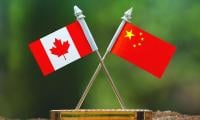Iran and the sanctions
The writer is a freelance journalist.
The recent decision of the Iranian government aimed at curtailing the powers and rights of the International Atomic Energy Agency’s officials is very unfortunate. Tehran has reduced the access of these officials and barred them from making snap inspections.
Tehran wants Washington to first lift all the crippling sanctions imposed on the country that have turned the lives of millions into a living hell besides badly affecting the economy of the country. The sanctions have also created immense difficulties for millions of Iranian people, and the country asserts that Washington has done very little to mitigate the hardships of the people.
According to Congressional Research Services, “Sanctions have been a significant component of US Iran policy since Iran’s 1979 Islamic Revolution that toppled the Shah of Iran, a US ally. In the 1980s and 1990s, US sanctions were intended to try to compel Iran to cease supporting acts of terrorism and to limit Iran’s strategic power in the Middle East more generally. After the mid-2000s, US and international sanctions focused largely on trying to persuade Iran to agree to limits to its nuclear program. Still, sanctions have had multiple objectives and sought to address multiple threats from Iran simultaneously.”
But many critics believe that these sanctions could not achieve their aims. Iran’s influence is far greater in the region than it was in the 1980s. The sanctions imposed in the aftermath of Iranian revolution of 1979 and later have only created bitterness between Iran and the West with Iran accusing America of confiscating billions of dollars of the republic.
The sanctions imposed by the Trump Administration badly affected various sectors of Iranian society and particularly dealt a devastating blow to health. According to Human Rights Watch, the economic sanctions, despite humanitarian exemptions, are causing unnecessary suffering to Iranian citizens afflicted with a range of diseases and medical conditions. “Some of the worst-affected are Iranians with rare diseases and/or conditions that require specialized treatment who are unable to acquire previously available medicines or supplies. This includes people with leukaemia, epidermolysis bullosa (EB, a type of disease that causes fragile, blistering skin), or epilepsy, and individuals with chronic eye injuries from exposure to chemical weapons during the Iran-Iraq war.”
Biden's election had created a ray of hope, leading many in Iran to think that their miseries would end now. However, the recalcitrance of American officials is turning this possibility into a dream. It is true that the Biden Administration has not given any substantial relief so far and is only depending on promises. This is perhaps because of the ground realities. There could still be hardliners inside the American administration that might not want any relief for the Islamic Republic which has been accused of bankrolling groups that target America and its allies’ interests.
But the decision of the Iranian regime to curtail the powers of international atomic watchdog’s officials is not positive either. It has sparked a debate in various circles. Many fear that it will only add to the miseries of the Iranian people who have nothing to do with the decisions made by the country's leadership. The decision has disappointed those who want to mitigate the hardships of the Iranian people, and has at the same time led to relief among the hardliners sitting in the power corridors of Tel Aviv. Anti-Iranian elements in the Middle East must also be euphoric over the decision, hoping that it would lead to the rise in tensions that would ultimately benefit them.
Israel and other states and kingdoms in the Middle East would now be in a position to propagate the idea that the regime in Tehran is not ready to respect international institutions. Without the right to snap inspections, the officials of the international nuclear watchdog would not be able to verify whether Iran is developing nuclear arms or not nor would they be able to confirm whether its nuclear programme is for peaceful purposes or not.
The Western media will seize the opportunity and might come up with concocted stories of alleged violations of the agreement by Iran. Such propaganda may turn global public opinion against Iran, forcing Joe Biden to revisit his policy of returning to the nuclear deal. Iran’s position will also create problems for Germany and other European countries that have retained some sympathy for the theocratic state. Their commercial interests are also a factor but what Tehran should remember is that most European states tend to support Washington. Some did defy during the US invasion of Iraq but later they tried to avoid infuriating the mighty state.
There have been diverging and converging points in US-Iran ties. Despite all the rhetoric, the two countries cooperated covertly during the Soviet invasion of Afghanistan. Tehran was also at least apparently close to the US line over the Afghan Taliban and their style of rule in the 1990s. The regime of Saddam Hussain was also a converging point between the two states. The Iranian clergy and Washington’s military officials also found a common enemy in Iraq and Syria in the form of ISIS. The two fought against the monster in different ways but it was clear that the militant outfit was not only rabidly anti-West but against Iran as well. Iranian support for Hezbollah, the Houthis in Yemen and Syria's Bashar al-Assad may be some of the diverging points but history shows that there are a number of converging points as well.
So, the Iranian leadership should demonstrate political acumen, put aside its tough stance and think about the millions of people who have suffered a lot because of the sanctions. The country has been gifted with a number of prudent diplomats and statesmen whose political sagacity is beyond any doubt. At times they have managed to checkmate even their Western counterparts with immense patience. Such patience, in fact, saved the Islamic Republic from meeting the fate of Iraq. The resilience of Iran and the Iranians and the pragmatism of its non-clerical leadership helped Iran in the past and it could come to the rescue of the republic again.
It is important that Tehran should not believe that a rigid stance would coerce the West and the US into showering favours on the Islamic Republic. There will for sure be provocations from certain hardliners in the US administration. Some elements will continue misguiding Biden’s administration. But Iran has also already borne the assassinations of its scientists during or after Trump's tenure, and it will probably need to face some more hardships. Such patience will help China, Russia, the EU and all those other stakeholders that want to resolve the Iranian nuclear issue and sanctions in a peaceful way. The IAEA has already verified a number of times in the past that the Iranian nuclear programme does not appear to be aimed at developing technology for non-peaceful purposes. The EU and some other Iranian supporters also believe in such verifications. Therefore, the Iranian leadership should ignore all these other provocations. Its patience in the past prompted the international community to come up with the Iran nuclear deal and its prudence now will force them to lift the sanctions.
Email: egalitarianism444@gmail.com
-
 Prince Harry, Meghan Markle Make Major Change To Strategy To Please Royal Family
Prince Harry, Meghan Markle Make Major Change To Strategy To Please Royal Family -
 Chester Bennington’s Mental Health Story And Lasting Legacy
Chester Bennington’s Mental Health Story And Lasting Legacy -
 John Cusack Gears Up To Give Fans Exciting Surprise On Late-night Television
John Cusack Gears Up To Give Fans Exciting Surprise On Late-night Television -
 Yerin Ha Opens Up About Shocking Diagnosis Post ‘Bridgerton’ Season 4
Yerin Ha Opens Up About Shocking Diagnosis Post ‘Bridgerton’ Season 4 -
 Meghan Markle, Harry Leave King Charles, Prince William Furious With Latest Move
Meghan Markle, Harry Leave King Charles, Prince William Furious With Latest Move -
 NASA Announces New Artemis Moon Mission Aimed At Expanding Astronauts’ Exploration Efforts
NASA Announces New Artemis Moon Mission Aimed At Expanding Astronauts’ Exploration Efforts -
 Everything To Know About Justin Bieber's Facial Paralysis
Everything To Know About Justin Bieber's Facial Paralysis -
 Morgan Stanley Predicts AI To Replace Tasks Not Workers
Morgan Stanley Predicts AI To Replace Tasks Not Workers -
 Anthropic Dario Amodei Calls White House Response ‘retaliatory’ In AI Safety Dispute
Anthropic Dario Amodei Calls White House Response ‘retaliatory’ In AI Safety Dispute -
 Savannah Guthrie Speculations 'sadly' Coming True About Mother Nancy
Savannah Guthrie Speculations 'sadly' Coming True About Mother Nancy -
 Tia Mowry Breaks Silence On Angelina Jolie Asking 'unbelievably' Personal Question: 'Wilder'
Tia Mowry Breaks Silence On Angelina Jolie Asking 'unbelievably' Personal Question: 'Wilder' -
 Trump Administration Warns Of Slow Payouts For Tariff Refunds Amid Intensifying Trade Disputes
Trump Administration Warns Of Slow Payouts For Tariff Refunds Amid Intensifying Trade Disputes -
 Princess Beatrice 'far From Comfortable' After Father Andrew's Arrest
Princess Beatrice 'far From Comfortable' After Father Andrew's Arrest -
 Sarah Ferguson’s Dual Cancer Journey
Sarah Ferguson’s Dual Cancer Journey -
 GTA 6 Security: Rockstar Blocks Leaks Ahead Of Launch
GTA 6 Security: Rockstar Blocks Leaks Ahead Of Launch -
 Demi Moore's New Look At Milan Fashion Week Sparks Serious Concern
Demi Moore's New Look At Milan Fashion Week Sparks Serious Concern



